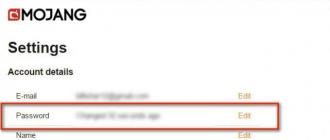Installation
basic settings
After installation, an icon with a ghost will appear in the upper right corner, this is the installed plugin. Click on it and then on the setting button.

When entering the settings, be sure to turn on the Ghostrank mode. This mode allows you to find new bugs on sites. If the plugin finds it, it sends bugs to the developers' server and they check them. This is necessary to replenish the database. By the way, I recommend turning on automatic updates. This line is below. Now you will have the most up-to-date version that blocks the maximum number of bugs. Next comes the "blocking" mode. It is necessary to determine what a bug is.
A bug is a script that runs when you visit a website. They are divided into categories:
Analytics - bugs used to collect statistics. They determine the user's entry to the site, browser type, location. These are the most harmless bugs, they just record statistics so that site administrators can know their traffic;
Privacy is the collection of information based on your interests. For example, you entered the search query "tours to Egypt" to find out the price, after which tours to Egypt will be offered on sites where there is advertising. It's simple;
Beacons - determine user behavior on the site. What links are most often clicked on, which buttons are clicked on, and the like;
A whitelist is mentioned in the program settings. This list, which contains site exceptions, will not be blocked.
An easy way to block all bugs and ads on every website. Go to the plugin settings and click "select all" and save. The screenshot shows the whole process. If you don't want to block everything, then uncheck a certain category, for example, the category "analytics" is absolutely harmless.

Today, the security of personal data of millions of users is one of the main problems of modern browsers. In this regard, the Yandex browser seems to be the best solution, since, despite the absence of any intelligible protection, it provides users with the opportunity to expand the existing functionality in ways, including those related to computer security.
Ghostery for Yandex Browser
Surely many have come across a situation where advertising from Google or Yandex somehow recommends suitable goods and services, although the user did not indicate any specifying information about himself. Such a case is a rather clear consequence of the work of the so-called bugs, which are located on the vast majority of portals.
Ghostery for Yandex browser is a special application designed to protect users of both PCs and mobile platforms from unauthorized use of their personal data. The principle of operation of the extension is extremely simple: it blocks bugs, which leads to a complete cessation of information leakage towards the site owner.
IMPORTANT! As foreign practice shows, personal data of users and their trade seems to be a rather successful and rapidly developing business, which is gaining momentum in our country.
This application is indispensable for those who responsibly approach the issue of security on the Internet, therefore, it is advisable to analyze its main features and functions.
Application features
This application is significantly different from its similar counterparts, like. After all, the latter work, mainly, based on updated filters, while Gosteri blocks all possible threats in advance, giving the user the opportunity to decide which of the widgets and bugs to allow and which to leave blocked.
Among the interesting features of the program, it is worth mentioning:
- Convenient sorting of bugs by purpose and function;
- The ability to add a site to the whitelist, which will restore its full functionality;
- The ability to disable and enable individual bugs, which allows for a flexible privacy policy.

TIP! You should not think that extensions, even the most functional ones, are capable of completely protecting users' personal data. To ensure perfect protection, you will need to use a whole range of measures, including vpn and a special browser.
Installing and using the extension
In order to expand the functionality of the browser and block bugs on sites, you will need to go to the Google application store, which presents the official page of the program. Despite the fact that the version presented in the service is intended for Chrome browsers, the Yandex analogue supports its installation, since it was created on its basis.
In order for the download to begin, you will need to press the appropriate key, after which the program will ask the user for confirmation of actions. After that, the download will start, which may take a long time in case of a slow Internet connection.

After the download is complete, the browser will again ask for permission to install, after which you will have to wait for the installation of the application to complete. Then you need to go to the browser settings, select the Add-ons item and find the installed Goster. It will need to be turned on by pressing the appropriate key.
Now, after loading each page, in the upper corner, next to the extension icon, the number of stopped elements will be displayed.
Video to help
Protection of personal information is an important issue, especially on the Internet. It's no secret that the services that everyone knows, for example, Google and Yandex search engines, social networks In contact with and Facebook from the first day, they collect a dossier for each visitor for effective targeted advertising of goods and services. This is their bread, business, money. Of course, an ordinary web surfer does not need such care at all, and if you do not use specialized software such as, then be sure to experiment with extensions to block tracking elements of web pages. One of the best solutions is a multi-browser plugin Ghostery, which will be discussed below.

So, Ghostery Is a free Russian extension for browsers and Internet Explorer, which protects the user's confidential information when visiting sites. The plugin easily finds and blocks unnecessary scripts ("bugs"), such as Yandex.Direct advertising modules, Google Analytics tools, social media buttons, chat forms - more than 2000 elements from 500 interested services.

Once activated Ghosterywill instantly identify all the "bugs" that are following you, they will be displayed in a purple pop-up window and in a drop-down list of a button with a blue ghost. Look how many bugs are found on the main page of the popular Avito free classifieds board (screenshot)! The rest is clear: by moving the sliders, you can block unnecessary elements. If you have doubts about the choice, then by clicking on any "bug", you will receive full information about both it and its developers.
In this video, we will look at a browser extension called Ghostery, which allows you to provide the basics of anonymity on the Internet. But in order to more clearly understand what kind of anonymity will be discussed, we will install this extension and in the course of studying its work we will consider various systems for tracking user activity.
I will consider how Ghostery works in the Google Chrome browser, but this extension also works in Mozilla Firefox and Opera, but is not supported by Internet Explorer. Therefore, for Internet Explorer, consider alternatives.
And so, let's get started, to install this extension, go to ( Menu \\ Settings \\ Extensions \\ View gallery \\Ghostery \\ Install). To the right of the address bar, we have a ghost icon, this icon will display the activity of the program.
Now let's move on to the program settings ( Ghostery \\ Settings \\ Settings):
Data collection - when you enable the Ghostrank function, when unknown web bugs or sites appear, this data will be sent to the program server to replenish the database;
Auto-update - automatic update of information about new bugs;
Blocking - here we specify which bugs to block and which not. In general, a web bug itself is a script that is launched on a website when you visit it or perform certain actions, and in the program they are divided into the following categories:
1) Analytics - bugs that are designed to collect statistics. They send information such as the number of visitors, their browser types, country, region, etc.
3) Confidentiality - collecting information based on your interests. To make it easier to understand, imagine the following situation, perhaps it happened to you. We went to the site of the online store to ask how much the watch costs on the Internet, so for the sake of interest. As a result, you figured out the information you needed and went to the news site. There is a teaser advertisement on the news site, i.e. advertising with an image and a small description, which has already gotten everyone. And after a while you notice that you are given an advertisement for watches, go to another site, the same thing. Those. watch ads start haunting you all over the internet.
In this situation, the web bug transmitted information about the topic you were interested in, and the service in conjunction with teaser networks began to fill you with similar offers in order to sell the product.
4) Lighthouses - tracking user activity. This is how many times a link has been clicked, etc.
You can whitelist a list of sites for which Ghostery will not block bugs, but this is easier to do while the program is running, rather than manually hammering in the necessary sites.
Let's block all bugs by clicking on the ( Select All \\ Save) and try to go to any site, let's say the video hosting site fimlix.net. A pop-up notification displays which bugs the program has found and which ones are blocked. Since we specified the blocking of all known bugs, the program blocked everything it found.
By clicking on the ghost icon, a window appears with a more detailed description of the blocked web bugs. Here we can disable or enable certain bugs completely or for certain sites, pause blocking or add a site to the whitelist.
Actually, that's the whole work of the program. In order to install this extension for Mozilla Firefox ( Menu \\ Add-ons \\ Search Add-ons \\Ghostery), for Opera ( Opera \\ Extensions \\ View extension gallery \\ Search add-ons \\Ghostery \\ Add toOpera)
But again, as I said, this program is not supported by Internet Explorer, so we will use a different method in it, this is adding anti-tracking lists (Menu \\ Configure add-ons \\ Tracking protection \\ Get anti-tracking list from the Internet \\ Add all lists ). In Internet Explorer, the block is displayed in blue in front of the refresh icon, as you can see, these lists also cope well with ads. The only drawback is that detailed information about what was found and what was blocked is not displayed.






